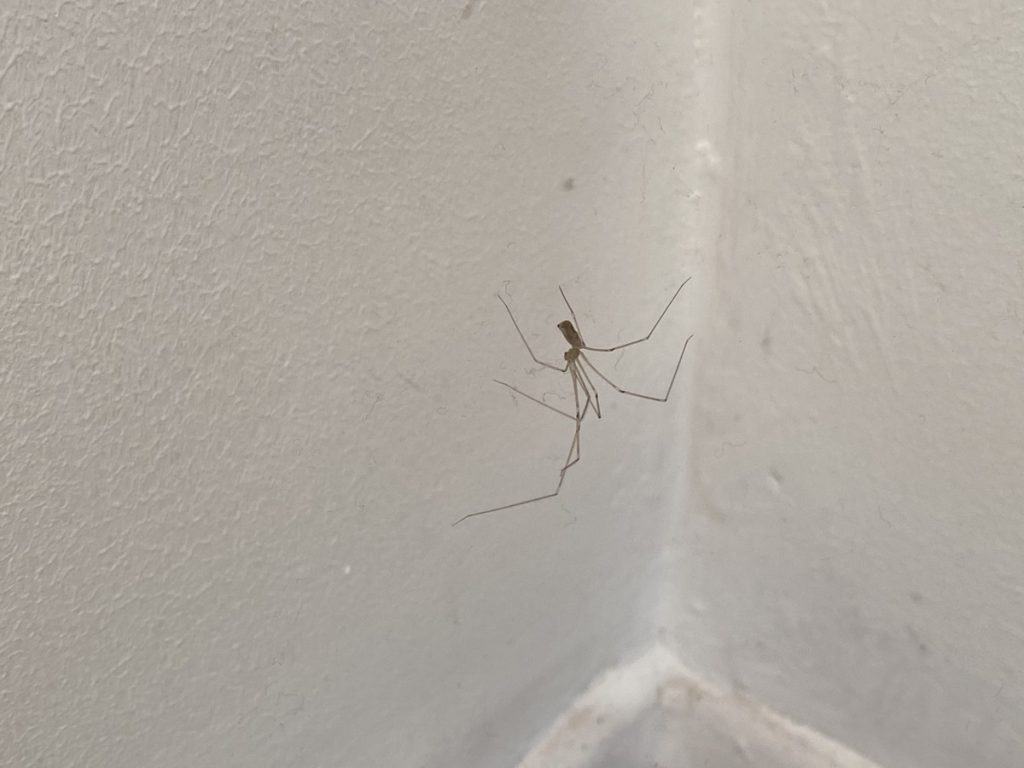
If you enjoy reading this article, why not check out our articles on How Many Spiderlings Can a Spider Have? and What Do Spiders Eat? The Complete Guide
Is it good to keep spiders out of the house?
Spiders are horrifying. Their hairy legs and the cobwebs they create can send shivers down anyone’s neck. The truth is these air-breathing arthropods, and their creepy-crawly nature can easily lead to even entomologists developing arachnophobia.
Are spiders dangerous?
Though most of the spider species are not dangerous to human beings, there are some species whose bite can be potentially poisonous to humans. A recent study also revealed that close to 10% of all spider bites lead to necrotic skin lesions. Further, spiders are unhygienic and spread around infections. Thus, it is understandable that any homeowner looking to get rid of a spider infestation is actually acting out in self-defense.
What are possible remedies to get rid of spiders?
Unfortunately, it is very tough to get rid of spiders. Their invisible cobwebs are hard to find and destroy. Most homeowners reflexively reach out for a spider spray as soon as they see a spider. While spider sprays may help you get rid of spiders, the harmful toxins they contain are hazardous to human health.
The good news is getting rid of spiders does not necessarily require one to expose oneself to harmful toxins. The best way to get rid of these arthropods is to opt for natural remedies. By the time you will have reached the end of this comprehensive article on how to get rid of spiders naturally, you will find yourself armed with all the information you need to wage war against the spiders who have made your beautiful home their permanent residence.
Have other bugs in your home you need to get rid of? Check out our article What Ants Don’t Like: Natural Ways to Repel Ants.
How to Get Rid of Spiders Naturally?
This article aims to familiarize and arm you with effective natural remedies that have proved powerful against spiders. Here we discuss a few of them.
Herbs and Essential Oils
Essential oils have an overpowering smell; something spiders cannot tolerate. It is, thus, that spiders cannot stand essential oils and their smell. Similarly, herbs also have the same effect on spiders.
What smells do spiders hate?
Therefore, to naturally get rid of spiders, make small pouches of herbs, and hang them in various parts of your house. If your spider infestation problem has gotten entirely out of hand, you can mix a herbal spider repellant spray with the herbs.
How to make a smell
When it comes to essential oils, citronella, tea tree, cinnamon, cedar, lavender, and eucalyptus are your best choices. Take about 20 drops of the essential oil of your choice and add it to a spray bottle. Dilute it with water and spray this concoction every day in every corner of your house.
Peppermint Oil
Peppermint is an essential oil and should have ideally been covered under the herbs and essential oils category. However, its effectiveness against spiders gives it its unique place in this list of natural remedies against spiders. A 2010-study revealed that peppermint oil is a powerful repellent for ants and spiders.
How to use
The study further revealed that this essential oil repels argentine ants, spiders, and several other home invaders for over a week after application. To make your spider-repellent peppermint oil spray, add about ten drops of peppermint oil to a one-fourth teaspoon of dish soap. Add this mixture to a spray bottle and add water. Spray this mixture every day until you no longer spiders in your house.
Lemon Peels

If you are dealing with spiders, do not ever discard lemon peels. It is believed that spiders can’t handle the citric nature of lemon peels, and thus, lemon peels repel spiders. How to naturally get rid of spiders?
How to use
Take leftover lemon peels and place them in the different corners of your home. This simple exercise will drive all the spiders away and keep the new ones from coming in.
Vinegar
Several studies suggest that vinegar is an effective solution to the spider problem as spiders cannot stand the sour taste and pungent odor of vinegar.
How to use
To create a natural vinegar spider repellent, create a 50-50 mixture of vinegar and water and spritz it into your whole house using a spray bottle. If you find the smell of vinegar off-putting, add three to four lemon peels to a bowl full of vinegar and let it stay overnight. The orange peel will dilute the smell of vinegar. Add this soaked vinegar to a bottle and dilute it by adding water. The ratio of vinegar to water should be 1:2. Add hot chili sauce to completely get rid of any smell and add some natural herbs to the mixture.
Ever wondered if vinegar gets rid of ants, too? We’ve got you covered: Can Vinegar Really Get Rid of Ants?
Conkers and Walnuts
While there is no scientific evidence to claim the validity of conkers and different kinds of nuts against spiders, homeowners have used conkers and walnuts for ages now to keep spiders and other house invaders away. Walnuts and chestnuts are known to be especially effective against spiders.
How to use
To get rid of spiders, scatter around chestnuts and walnuts in the outside areas of your home and around the window frames. You can also use conkers. However, conkers can be dangerous to your pet, and thus, it is best to consult with a vet before scattering conkers in your house if you are a pet parent.
Garlic
Garlic works to protect us against everything harmful, including spiders. To create a garlic-based spider repellant.
How to use
Add garlic to a bottle of plain water and let the garlic sit in water for a few hours. Spray the resulting solution in every corner of your house.
If you are allergic to the strong smell of garlic, much like most of us, take a few leaves from the tomato plant and create a garlic paste using these leaves.
Add the paste to a spray bottle, add cornstarch and water, and spray in every corner of your house. This powerful natural repellant will not only help you get rid of spiders but also common house insects.
How to Get Rid of Spiders Inhabiting Specific Areas of Your Home?
Compared to harmful chemical toxins, these remedies may take some time to show their result, but they most certainly help you get rid of those spiders giving you nightmares.
However, these remedies will not be equally effective in every area of your home. Here are a few things you can do to stop seeing spiders in specific areas of your house.
How to Get Rid of Spiders in Your Yard?
Natural remedies, such as a peppermint oil spider repellant or garlic, are not extremely useful in outdoor settings. Thus, if you have a spider infestation in your yard, you will have to look for natural remedies beyond essential oils, herbs, and nuts.
Ways to get rid of spiders in yard
To get rid of spiders in your yard;
Seal all the holes
the first thing you must do is seal all the cracks in the walls and the windows. The cracks are, most often, the places where spiders hide. Buy silicone caulk from the home depot and use it to close all cracks. If you do not have the time, hire a professional to do the job.
install the door
If you live in any area infested by spiders, it is a good idea to install door sweeps to prevent the spiders from entering your home.
Minimize outdoor lights
Yet another thing you can do to get rid of the spider population in your yard is to minimize outdoor lighting. Lighting attracts insects, and insects, in turn, attract spiders. Thus, always switch off lights when not needed.
Use white lights
Make sure you are not using white light in your yard as white light attracts more insects. Use a bulb that gives out a yellow glow. Further, do not install any light source very close to the house.
These simple tricks will help you protect your yard against spiders.
How to Get Rid of Spiders in Your Lakehouse?
If you live in a lakehouse, you must already realize how lucky you are. Though lakehouses invariably make beautiful homes, they come with their own set of problems, spiders being one of them.
Ways to get rid of spiders
However, by taking some small measures, you can quickly get rid of the spiders in your lakehouse.
Keep vicinity clean
To start with, always keep the vicinity clean. Spiders make cobwebs in dark and cluttered spaces. Foliage, grass clippings, and wood logs are some of the favorite places spiders like to live in. Clean and disinfect your lakehouse regularly. If you see any cobwebs, remove them immediately.
Add spider repelling plants
That apart, you will also benefit significantly by adding spider-repelling plants, such as cedar, lemon balm, eucalyptus, and lemongrass, around your lakehouse. Cover spider-affected areas with a thin coat of diatomaceous earth. Do not use your hands to apply the layer; use a hand duster.
Essential oils
Last, invest in an excellent essential oil diffuser. Add essential oils to it and place it outside your house. Use essential oils in their concentrated form if you are planning to use place the diffuser outside your home. You can dilute the oils while using the diffuser inside your home.
The Final Word
Pest control companies will have you believe that when it comes to spiders, the only practical solution is powerful chemicals. Nothing is farther from the truth. People have used natural remedies to keep spiders away from their homes for centuries now, and these remedies have always worked well. Spiders are no reason to let harmful toxins enter your home and your biological system. Do not be fooled; always choose natural remedies in place of toxic chemicals.
If you enjoyed reading this article, why not check out our articles on Can Spider Fangs Grow Back? Let’s Find Out and How Small Can Spiders Get? Real Small!
Recent Posts
Tiny Black Bugs in Bathroom NO WINGS: What They Are and What to Do!
Finding tiny black bugs in your bathroom can be uncomfortable, to say the least. Especially if they are persistent, or they appear in very large numbers, which they often like to do. When it...
Tiny Black Bugs in Plant Soil - What Are They & What To Do About It
A short horror story: You get a new houseplant. You do your best to take care of it. You’ve ensured that it has the right soil, the right amount of sun, it gets enough water. And then one day, you...

